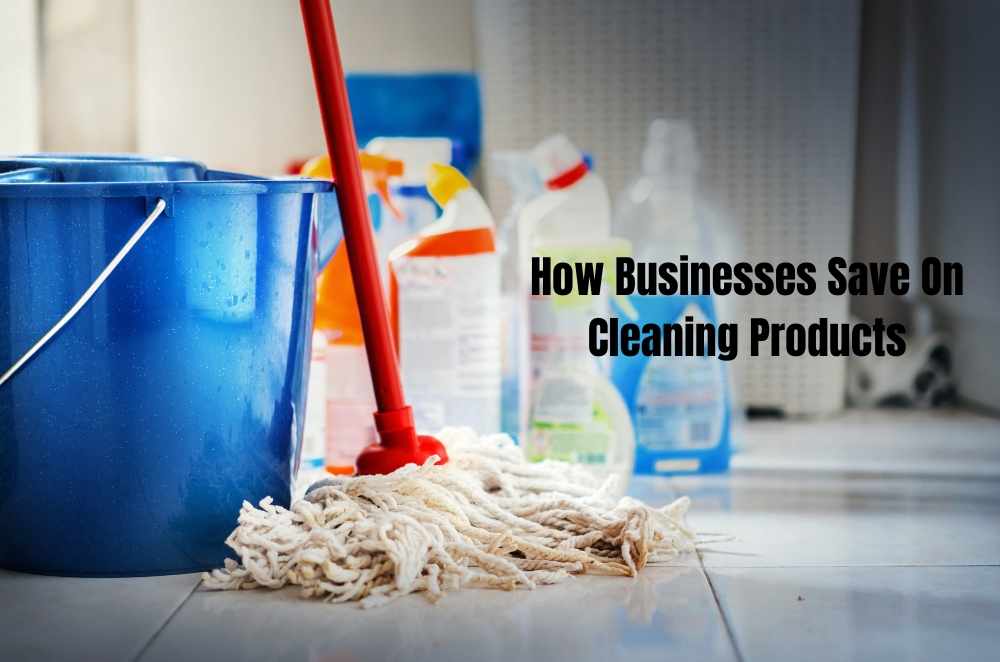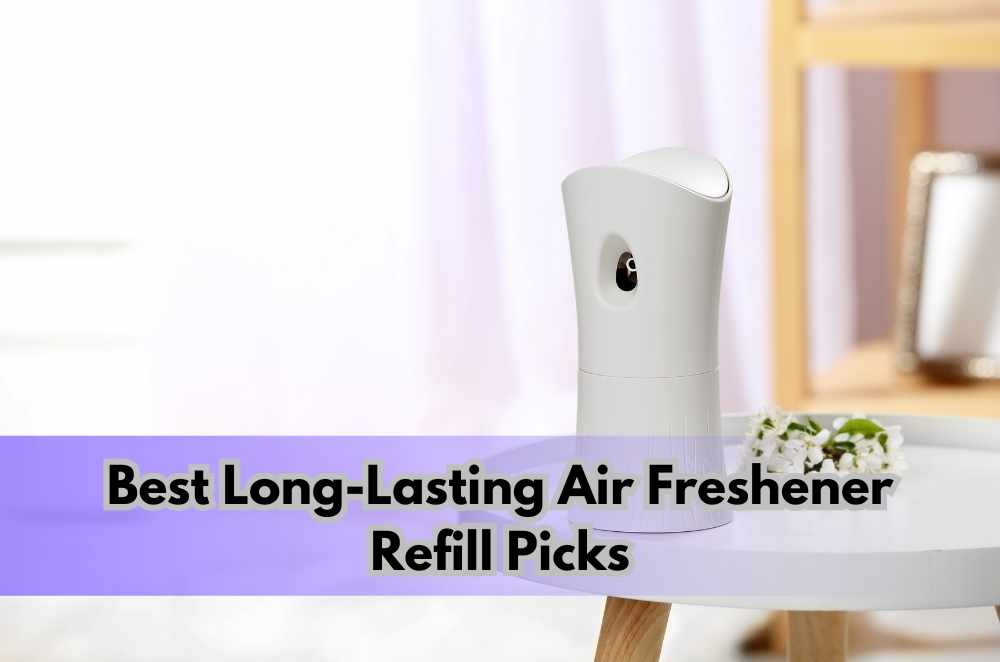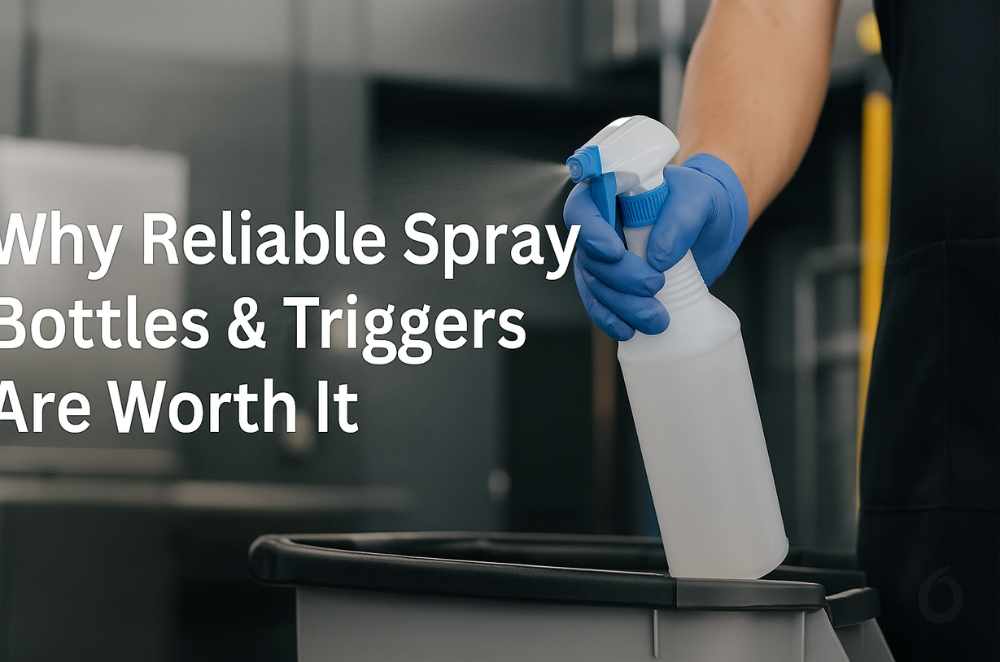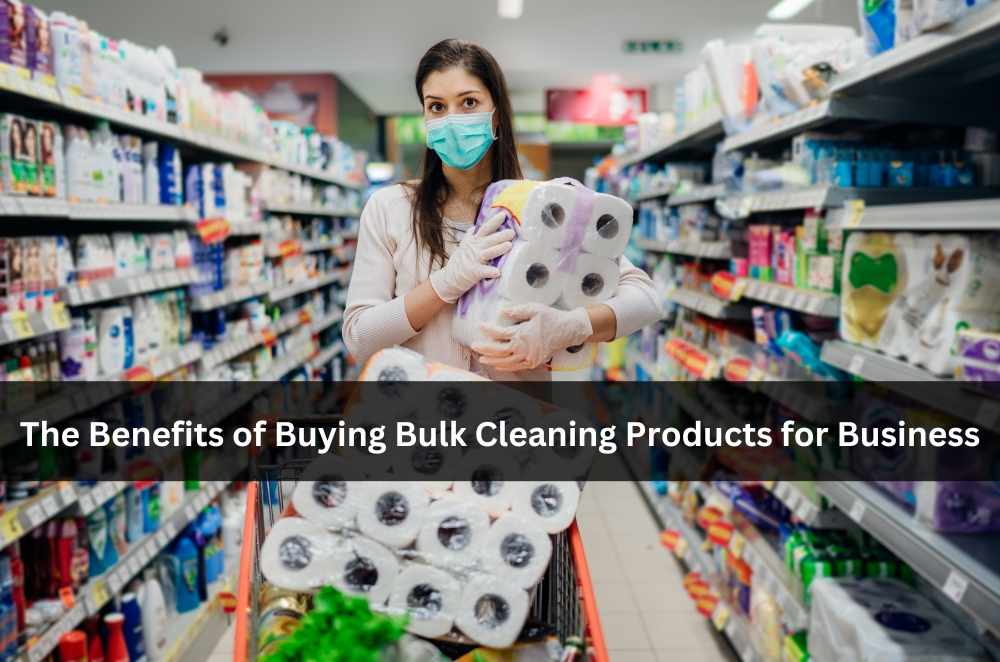
Why more businesses are buying in bulk
When I first took on office management at our company, I didn’t give much thought to how we ordered cleaning products. We had a standing order for a few basics, and when stock ran low, someone would dash out to the local store to grab what we needed.
It wasn’t until one of our suppliers suggested we look at wholesale cleaning supplies that I realised how inefficient — and expensive — our old system was. By switching to bulk orders, we cut our costs, reduced waste, and saved loads of admin time. It’s a simple shift that more businesses are making — and once you start, it’s hard to go back.
Why bulk buying makes financial sense
The first thing you notice when buying in bulk is the price difference. Suppliers offer significant discounts when you order by the carton or pallet, rather than individual items.
Here’s a quick example from our first bulk order:
Item
Paper towel rolls
Surface spray
Hand soap refill
Regular Price
$3.50 each
$6.00 each
$4.80 each
Bulk Price
$2.20 (box of 24)
$4.10 (carton of 12)
$3.00 (case of 6)
In our first quarter of buying bulk, we saved around 25% compared to previous monthly orders, and that was just on common consumables.
Environmental and efficiency gains
Beyond saving money, bulk buying is also more sustainable. Fewer deliveries mean fewer transport emissions. Larger packs use less packaging per unit. And buying concentrated versions of cleaning chemicals reduces plastic waste even further.
We’ve also noticed less staff time spent placing orders and managing stock. With a good inventory system and a well-stocked supply room, everything runs smoother, and the cleaning crew always has what they need.
What to buy in bulk — and what to skip
Not everything is worth buying in bulk. Here’s what we’ve learned over time:
Great bulk buys:
✅ Hand soap
✅ Disinfectants
✅ Paper towels & toilet paper
✅ Bin liners
✅ Surface sprays
✅ Glass cleaner
✅ Laundry detergent
✅ Concentrated cleaning chemicals
Better in smaller quantities:
❌ Specialty cleaners you rarely use
❌ Perishables with short shelf life
❌ Scented products (staff preferences vary)
Storage tips — and lessons learned
One thing I hadn’t considered was where to store all this product. Our first few orders took over half the staff kitchen! We quickly reorganised a supply cupboard and added some heavy-duty shelves to hold bulk stock safely.
A few storage tips:
✅ Keep cleaning chemicals in a cool, ventilated space
✅ Rotate stock (first in, first out)
✅ Clearly label shelves
✅ Track inventory to avoid over-ordering
Safe Work Australia provides helpful guidelines for chemical storage and handling — worth reviewing if you’re ordering large volumes.
Why good supplier relationships matter
When we first switched to bulk, I called a few suppliers, and the difference between them was obvious. The one we chose offers:
✅ Fair pricing
✅ Reliable stock availability
✅ Flexible order sizes
✅ Prompt delivery
✅ Responsive support
When a product was unexpectedly out of stock for one month, our rep suggested an alternative and rushed delivery, saving us a lot of hassle. A good relationship with your bulk supplier is invaluable.
The time savings surprised me
I originally thought bulk buying would mean more admin, but it’s the opposite. Instead of placing weekly or fortnightly orders, we now reorder core cleaning equipment and consumables every two or three months.
Benefits we’ve seen:
✅ Fewer invoices to process
✅ Less time spent tracking down products
✅ Less risk of stockouts
✅ Happier cleaning staff (everything’s on hand when they need it)
Comparing quality — bulk vs retail
A lot of people assume bulk = lower quality. In my experience, the opposite is true, especially when working with reputable suppliers.
Many of the best cleaning products used by professional cleaning services are only available through wholesale channels. Since switching, we’ve had fewer complaints about product performance from our cleaning team.
Smart buying tips for businesses
If you’re thinking of moving to bulk, here are a few tips from my learning curve:
✅ Start by tracking what you use most — these are your priority bulk buys
✅ Review storage space before ordering
✅ Don’t overbuy products with short shelf life
✅ Compare suppliers — pricing and delivery terms vary widely
✅ Trial new products before committing to a large order
✅ Factor in staff preferences — for example, some scented products were unpopular in our office
Our bulk buying journey — 18 months in
Eighteen months after making the switch, here’s what’s changed:
✅ Our cleaning budget is about 30% lower
✅ We spend less time managing supplies
✅ Staff satisfaction has improved (we rarely run out of anything now)
✅ We’ve reduced packaging waste noticeably
✅ The cleaning team has access to more professional-grade products
It’s one of those “why didn’t we do this sooner?” improvements that continues to pay off.
Final thoughts
For any business that uses cleaning products regularly — offices, hospitality venues, healthcare clinics, retail spaces — buying in bulk is a smart move.
The savings alone make it worthwhile. Add in the environmental benefits, operational efficiency, and improved product quality, and it’s an easy decision.
Start with your most-used items. Build a relationship with a trusted supplier of wholesale cleaning supplies. And don’t be afraid to try new products and systems. Like us, you’ll likely find it’s a small change with big payoffs — and one that keeps your workplace cleaner, greener, and more cost-effective.





Write a comment ...